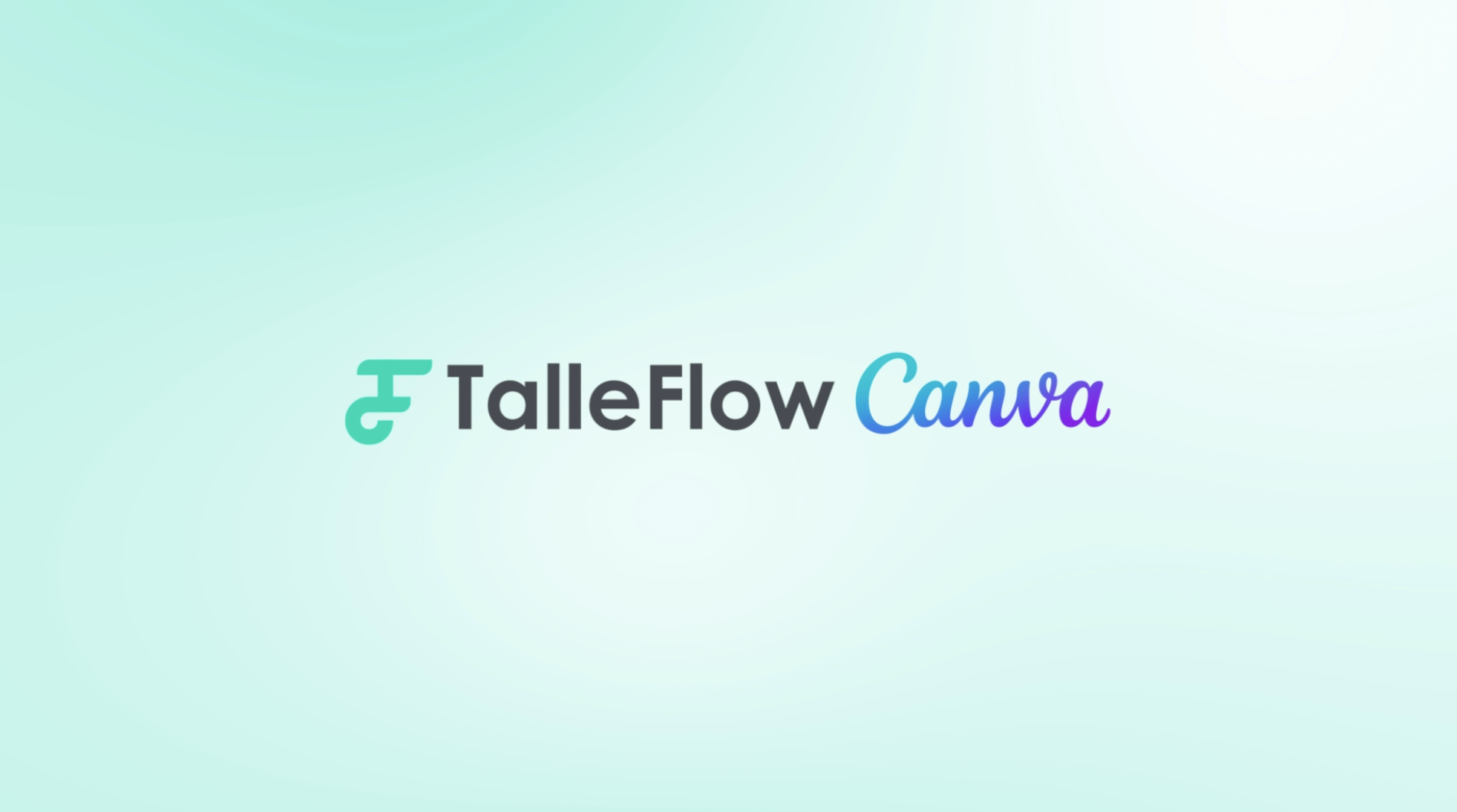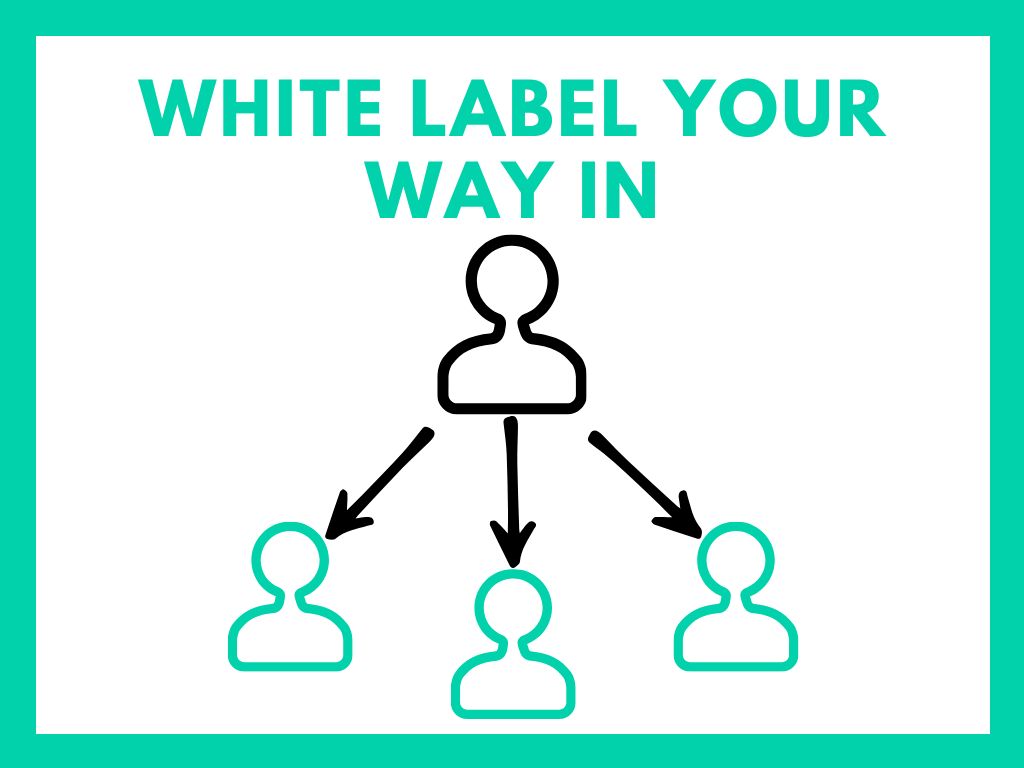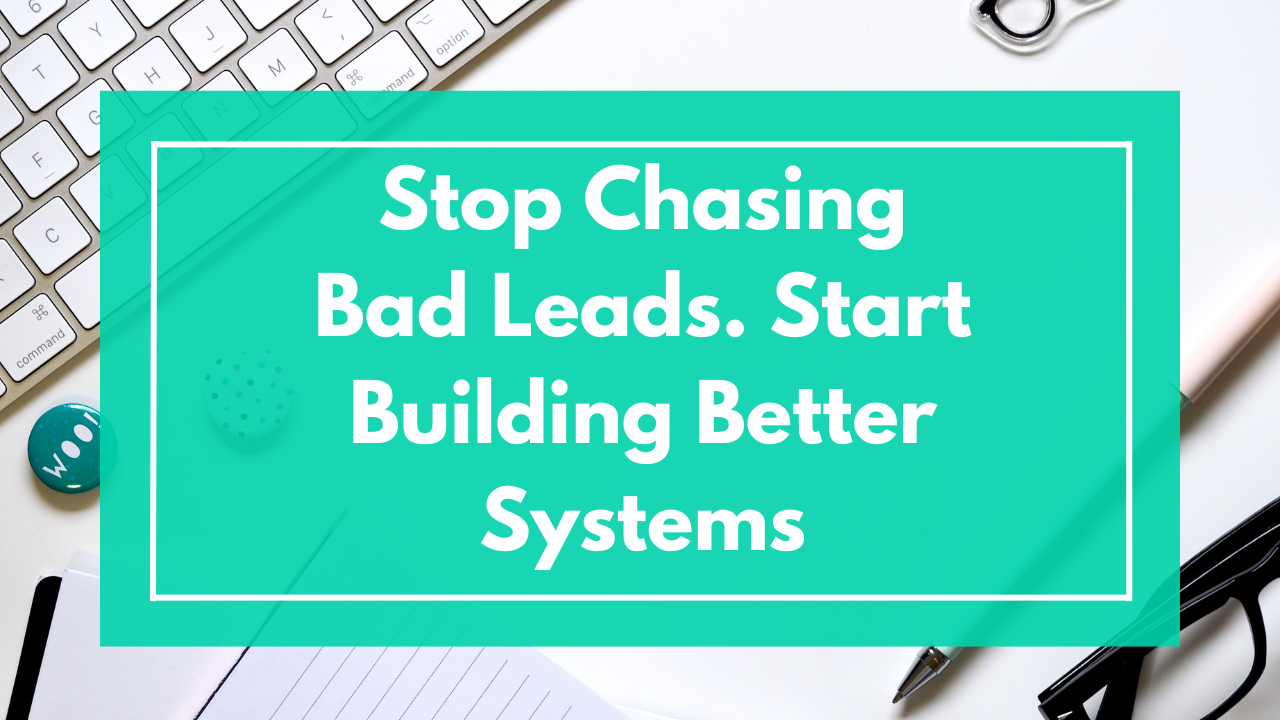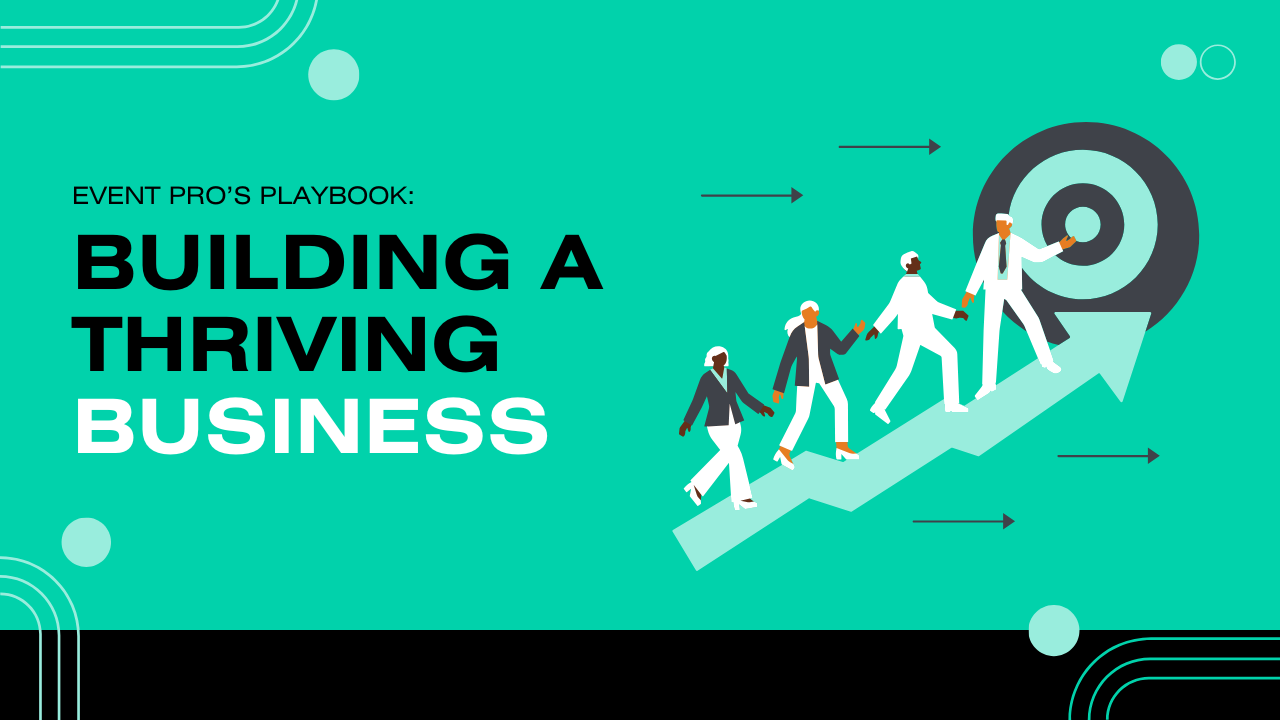The Event Professional's Playbook: How to Break Into the Industry and Land Your First Clients
The Event Professional's Playbook: How to Break Into the Industry and Land Your First Clients
So you want to become an event planner. You've watched enough weddings, corporate galas, and birthday parties to know you could crush this. You've got the eye for detail, the organization skills, and the people skills.
There's just one problem: how do you actually get started when you have zero clients and zero portfolio?
Here's what nobody tells you: breaking into event planning isn't about formal degrees or expensive certifications. It's about building relationships, getting creative with how you land your first gigs, and—most importantly—systematically nurturing every single contact you make.
In this playbook, we'll walk you through:
- How to land your first event planning clients (even with no experience)
- Smart strategies for building your contact list fast
- White label opportunities that'll pay the bills while you build your brand
- How to use a CRM to turn one-time clients into repeat business
- Follow-up tactics that actually work
Ready to launch your event planning business? Let's get into it.
Why Breaking Into Event Planning Feels Impossible (And Why It's Actually Not)
Let's address the elephant in the room: you need experience to get clients, but you need clients to get experience.
It's the classic catch-22.
But here's the thing—successful event planners don't wait for someone to hand them an opportunity. They create their own. They volunteer. They partner. They hustle smart, not just hard.
The event planning industry is worth over $1 trillion globally. People need help planning everything from corporate conferences to baby showers. Your job is to position yourself as the obvious choice when they're ready to hire.
Strategy #1: Use Fundraising Events to Build Your Contact Database
Want to know the fastest way to collect hundreds of high-quality contacts? Volunteer to help plan fundraising events.
Nonprofits are always hosting galas, charity runs, auctions, and community events. And guess what? They're usually operating on shoestring budgets and desperately need help.
Here's why this strategy is brilliant:
You Get Real Experience
You'll learn the fundamentals—vendor management, timeline creation, day-of coordination—on someone else's dime. No risk to you if something goes sideways (though ideally it won't).
You Meet Everyone Who Matters
Fundraising events attract donors, business owners, community leaders, and other professionals. These are exactly the people who hire event planners for their corporate events, weddings, and private parties.
Pro tip: Don't just show up and blend in. Work the room. Introduce yourself. Hand out business cards. Let people know you're building an event planning business.
You Build Your Portfolio
Take photos. Document everything. Get testimonials from the nonprofit organizers. Now you have proof you can execute successful events—even if you weren't paid (yet).
How to Find These Opportunities
- Search for local nonprofits on social media and their websites
- Look for volunteer coordinator positions on sites like VolunteerMatch
- Attend community events and ask organizers if they need help with future events
- Join local chambers of commerce and networking groups
Once you've helped with 2-3 fundraising events, you'll have a contact list full of potential clients and real experience to talk about.
Strategy #2: Partner With Established Event Pros for White Label Work
Here's a secret: successful event planners are drowning in work.
They're maxed out. They're turning down clients. They need help but don't want to hire full-time staff.
That's where you come in.
White label partnerships are arrangements where you do the work behind the scenes while an established event planner puts their name on it. You get paid. You gain experience. You build relationships.
It's a win-win.
How White Label Partnerships Work
Let's say an established planner books three weddings on the same weekend. They can only physically be at one. They hire you to coordinate the other two under their brand name.
You handle everything—vendor coordination, timeline management, day-of execution. The client thinks you work for the main planner. You get a flat fee or percentage. The planner keeps their client happy.
Finding White Label Opportunities
Reach out to local event planners directly. Send a short, professional email:
"Hi [Name], I'm a new event planner in [City] looking to gain more experience. I noticed you specialize in [weddings/corporate events/etc.]. Would you be open to contracting work for events when you're overbooked? I'd love to support your business while building my skills."
Look for venues that need on-site coordination. Wedding venues, conference centers, and hotels often need day-of coordinators. They'll hire you as a contractor and expose you to tons of potential clients.
Join event planning Facebook groups and industry forums. Established planners often post when they need extra hands. Be the first to respond.
What to Charge
When you're starting out, white label work typically pays $200-$500 per event depending on complexity and your market. It's not huge money, but it pays your bills while you build your own client base.
(Plus, if you do great work, these established planners will eventually refer direct clients to you.)
Strategy #3: Offer Your Services to Friends, Family, and Coworkers First
I know, I know. You've heard this advice before. But here's why it actually matters:
Your network is warmer than you think.
Someone in your circle is planning a milestone birthday. Someone's company needs help with their holiday party. Someone's getting married. Someone knows someone who needs an event planner.
The key is making it easy for them to say yes.
Start With a "Friends and Family" Offer
Don't do it for free (people don't value free work). But offer a significant discount:
"I'm building my event planning portfolio and offering friends and family 50% off my regular rates. If you're planning any events in the next few months, I'd love to help make it incredible."
Make It Stupid Simple to Refer You
Give people a one-sentence explanation of what you do:
"I help busy professionals plan stress-free events—from corporate parties to milestone birthdays—so they can actually enjoy them."
When it's clear and specific, people can easily refer you to others.
Document Everything
These early gigs are gold for your portfolio. Take tons of photos. Get video testimonials. Ask clients to review you on Google.
Three solid testimonials from real events will do more for your credibility than any certification.
Strategy #4: Use a CRM to Systematically Nurture Every Lead
Here's where most new event planners drop the ball: they don't follow up.
Someone expresses interest. You have a great conversation. Then… nothing. You both move on with your lives. That lead evaporates.
This is where a CRM (customer relationship management tool) becomes your secret weapon.
Why Event Planners Need a CRM
Think of a CRM as your external brain for client relationships. It tracks:
- Every person you meet at networking events
- Past clients who might need you again
- Leads who reached out but weren't ready to book yet
- Vendor contacts you want to maintain relationships with
- Follow-up tasks so nobody falls through the cracks
Without a CRM, you're relying on memory and sticky notes. (Good luck with that.)
How to Use Talleflow for Event Planning Lead Nurturing
Here's a practical workflow you can implement today:
Step 1: Add Every Contact to Your CRM
Met someone at a fundraising event? Add them. Had a consultation call that didn't convert? Add them. Worked with a great florist? Add them.
In Talleflow, create projects for each potential client and tag them by stage (lead, consultation scheduled, proposal sent, booked, completed).
Step 2: Set Follow-Up Reminders
Someone said "maybe next year"? Set a reminder to reach out in 8 months. A past client's event was amazing? Set a reminder to check in quarterly.
Talleflow lets you create tasks and reminders so you never forget to follow up at the right time.
Step 3: Track All Communication in One Place
Log every email, call, and meeting note in your CRM. When a lead reaches back out six months later, you'll immediately know your entire history together.
No more "wait, did we already discuss budget?" moments.
Step 4: Create Email Templates for Common Scenarios
- Initial outreach emails
- Follow-up after consultations
- Post-event thank you messages
- "Checking in" emails for past clients
Save these templates in Talleflow so you can personalize and send them in seconds.
Step 5: Build Automated Follow-Up Sequences
Set up simple workflows like:
- Week 1 after consultation: Send proposal
- Week 2 after proposal: Follow-up email
- Week 3: Final follow-up before moving to "lost"
This ensures nobody gets forgotten, even when you're juggling multiple events.
The Real Power: Repeat Clients and Referrals
Here's something most new event planners don't realize: your best clients are past clients.
Corporate clients need annual events. Wedding clients have friends who also need wedding planners. Birthday party clients have anniversaries, retirement parties, and other milestones.
A CRM helps you stay top-of-mind so when they need an event planner again, you're the obvious choice.
Strategy #5: Follow Up With Past Clients Religiously
Let's say you planned someone's wedding. It was beautiful. Everyone had an amazing time. You got paid. Done, right?
Wrong.
That client is a goldmine for future business—if you stay in touch.
The 90-Day Check-In
Three months after an event, send a quick email:
"Hi [Name]! I was just thinking about your wedding and how beautiful everything turned out. How's married life treating you? If you know anyone planning events who could use help, I'd love a referral!"
Simple. Personal. Effective.
The Annual Touch-Base
Once a year, reach out to every past client:
"Happy New Year! I loved working on your event last year. If you're planning anything this year—or know someone who is—I'd be honored to help make it special."
This takes 10 seconds per client if you've got templates set up in your CRM.
Ask for Referrals Strategically
Don't just say "let me know if you know anyone." Be specific:
"I'm currently booking corporate holiday parties for December. If your company or any companies you work with need an event planner, I'd love to chat!"
Specific asks get better results than vague ones.
Strategy #6: Network Like Your Business Depends On It (Because It Does)
Event planning is a relationship business. The more people you know, the more opportunities you'll have.
But networking isn't about collecting business cards. It's about building genuine relationships with people who can refer business to you.
Where to Network
- Local chambers of commerce - Full of business owners who host corporate events
- Wedding industry professionals - Photographers, florists, venues, caterers all refer clients to each other
- BNI (Business Network International) - Structured referral groups designed for cross-referrals
- Industry-specific associations - Meeting Professionals International, International Live Events Association
- Social media groups - Local event planning and small business communities
How to Network Effectively
Don't lead with a sales pitch. Lead with curiosity. Ask questions. Learn about their business. Find ways to help them.
When you're genuinely helpful, people naturally want to help you back.
Follow up after networking events. (Yes, CRM again.) Send a LinkedIn connection request or email within 24 hours:
"Great meeting you at [event]! I'd love to stay connected and see how we can support each other's businesses."
Offer to collaborate. Propose joint marketing with complementary vendors. Co-host a styled shoot. Cross-promote on social media.
The more visible you are in your local event community, the more referrals you'll get.
Common Mistakes New Event Planners Make (And How to Avoid Them)
Mistake #1: Trying to Be Everything to Everyone
You can't specialize in weddings, corporate events, birthday parties, and nonprofit galas all at once. Pick one or two types of events to focus on initially.
Why this matters: When someone needs a wedding planner, they want to hire a wedding planner—not a "general event planner who also does weddings."
Mistake #2: Undercharging Because You're "New"
Yes, you should offer competitive rates when starting out. But don't work for peanuts.
Your time, expertise, and stress have value. Charge what you're worth—even if you're building experience.
Mistake #3: Not Tracking Leads Systematically
The fastest way to kill your business is letting leads slip through the cracks. Use a CRM from day one. Track every single person you talk to.
Mistake #4: Ignoring Past Clients
Once an event is over, most planners move on to the next one. This is a huge missed opportunity.
Stay in touch. Check in. Ask for referrals. Your past clients are your best marketing asset.
Mistake #5: Not Following Up Enough
People are busy. They forget. They get distracted. One follow-up email isn't enough.
Follow up at least 3-4 times before giving up on a lead. Most deals happen after the third follow-up.
Your 90-Day Action Plan to Launch Your Event Planning Business
Feeling overwhelmed? Here's a simple roadmap to get started:
Weeks 1-4: Build Your Foundation
- Create a simple website or social media business page
- Sign up for a CRM like Talleflow
- Design business cards
- Write down your service offerings and pricing structure
Weeks 5-8: Get Experience
- Volunteer for 1-2 fundraising events
- Reach out to 10 established event planners about white label opportunities
- Offer friends/family your discounted "portfolio-building" rate
Weeks 9-12: Start Marketing
- Join 2-3 networking groups
- Post your first client testimonials and event photos
- Send follow-up emails to everyone you've met
- Set up automated follow-up sequences in your CRM
Ongoing: Nurture, Follow Up, Repeat
- Check your CRM daily for follow-up tasks
- Reach out to past clients quarterly
- Attend networking events monthly
- Document every event with photos and testimonials
The Bottom Line: Consistency Beats Perfection
Breaking into event planning doesn't require a fancy degree or years of experience.
It requires hustle, relationship-building, and consistent follow-up.
The event planners who succeed aren't necessarily the most talented. They're the ones who show up, follow up, and stay top-of-mind until clients are ready to book.
Use these strategies. Track your leads. Nurture your relationships. Keep showing up.
Before you know it, you'll have more clients than you can handle. (That's when you start hiring other new planners for white label work. The circle of life!)
Ready to organize your event planning business and never lose a lead again? Try Talleflow free for 14 days and see how easy it is to manage contacts, follow up systematically, and turn one-time clients into raving fans.
Related: Check out our guide on client relationship management for service businesses and how to follow up without being annoying.
Keywords: how to become an event planner, event planning business tips, breaking into event planning, event planner CRM, get event planning clients, event planning lead generation, white label event planning, fundraising event networking, event planner follow up strategies, start event planning business, event coordinator jobs
.svg)

.png)
.avif)







.png)

.avif)

.svg)
.svg)
.svg)
.svg)
.svg)




